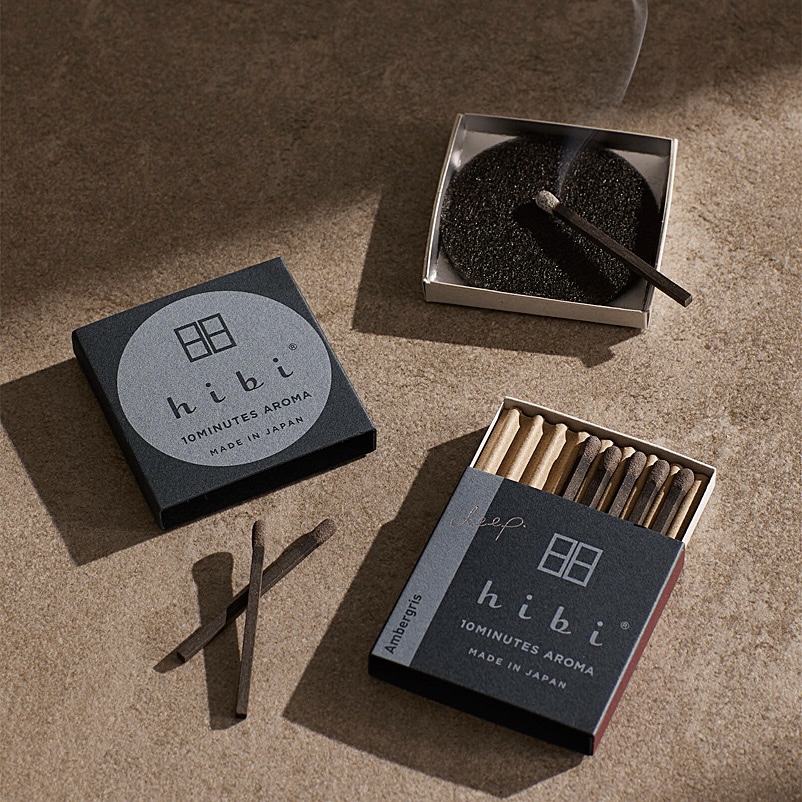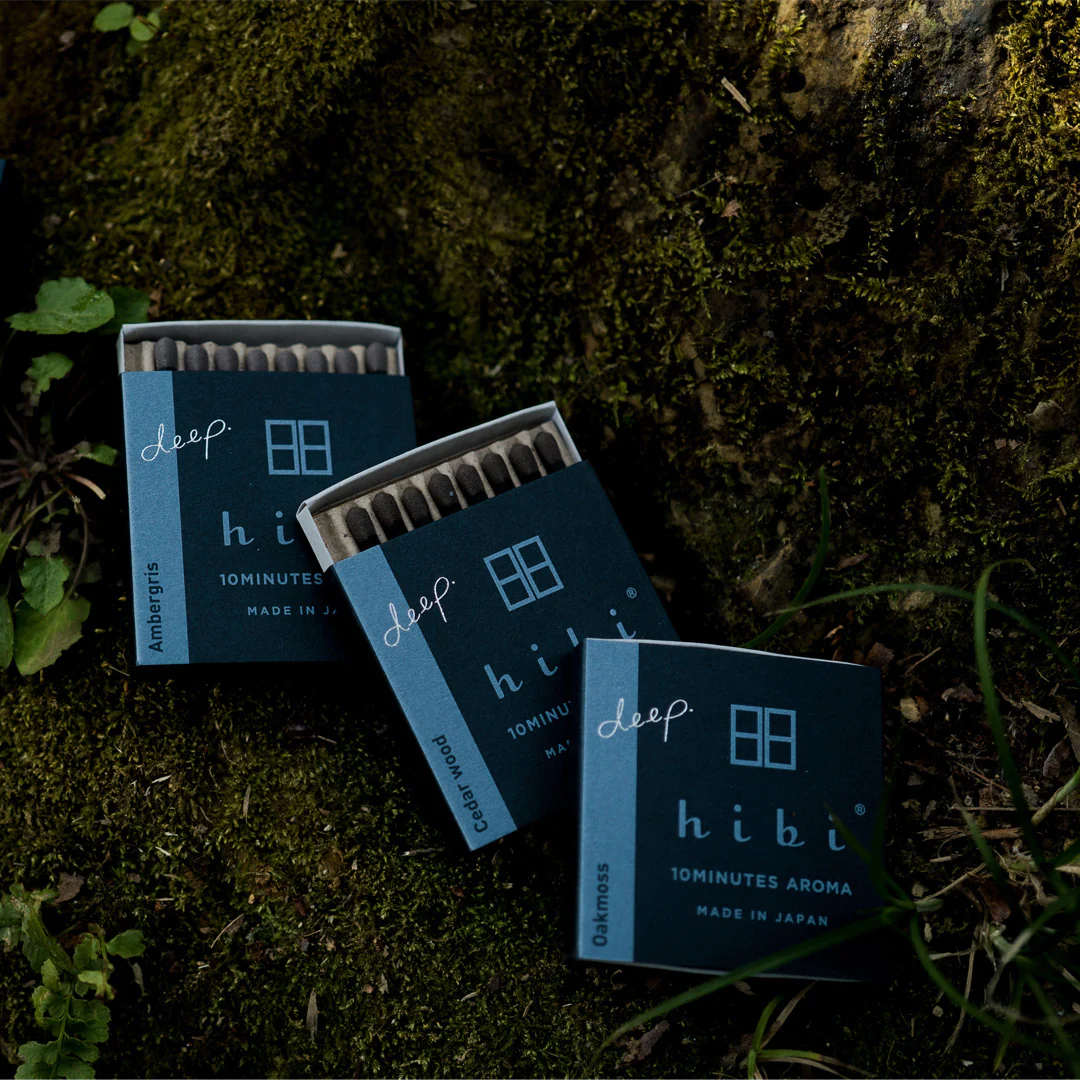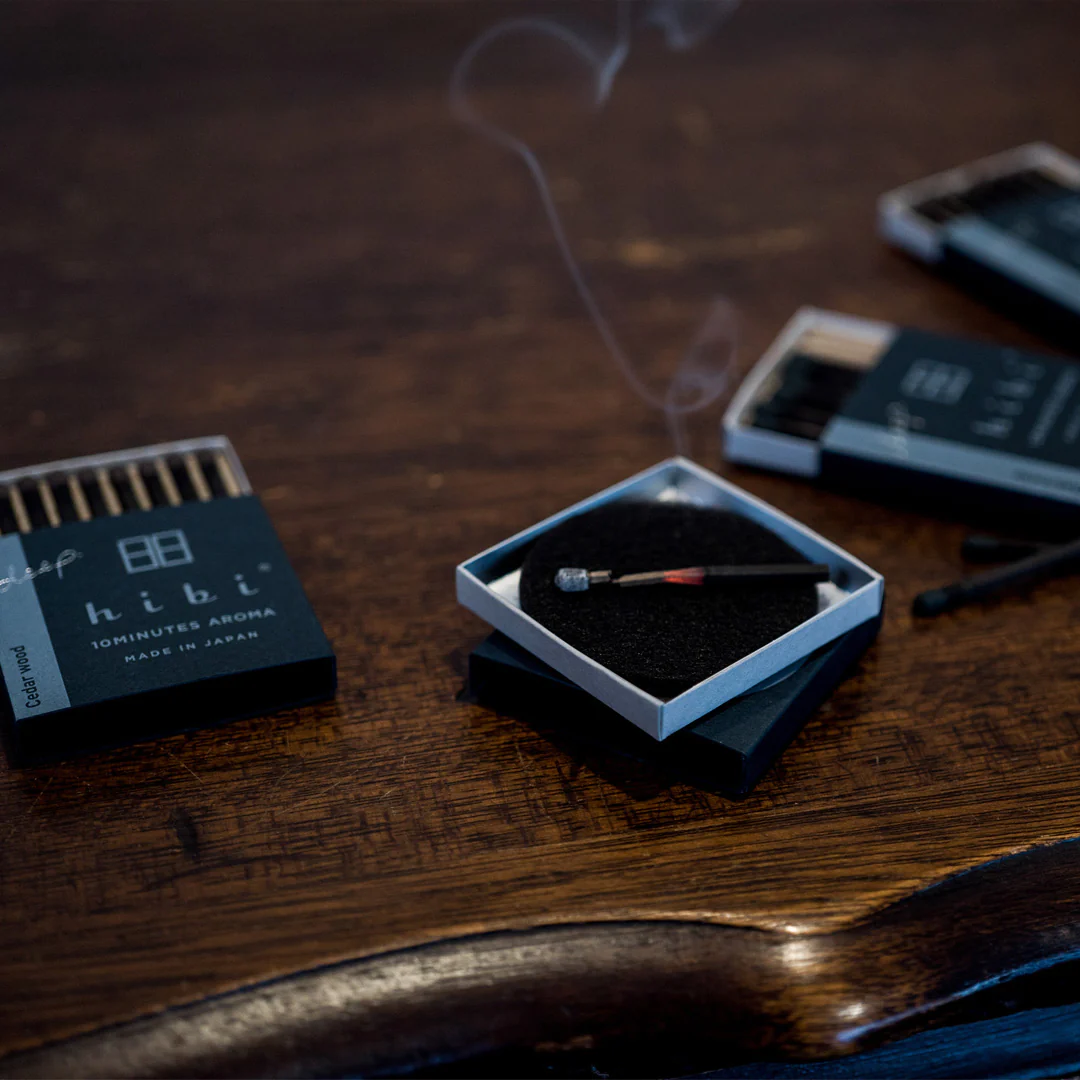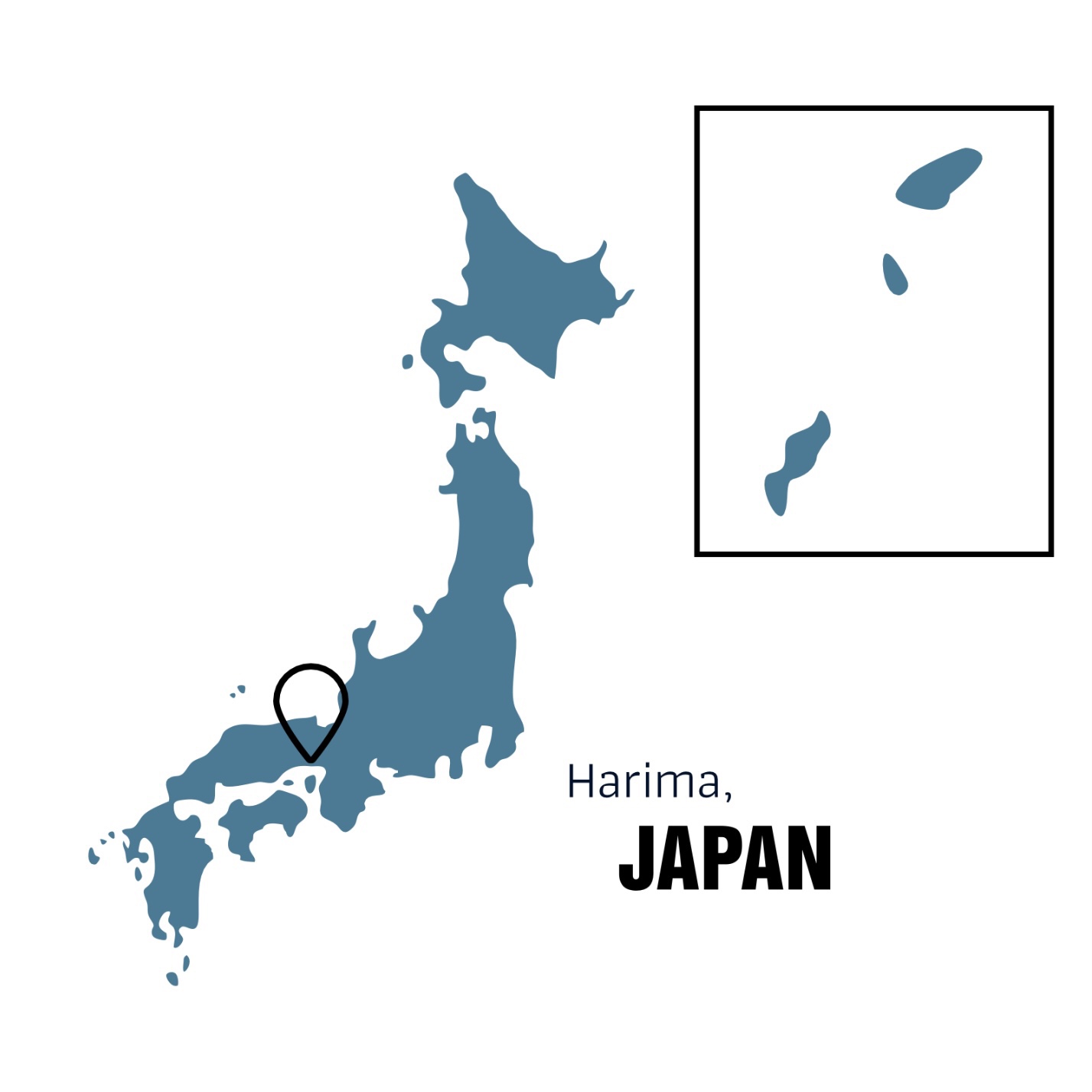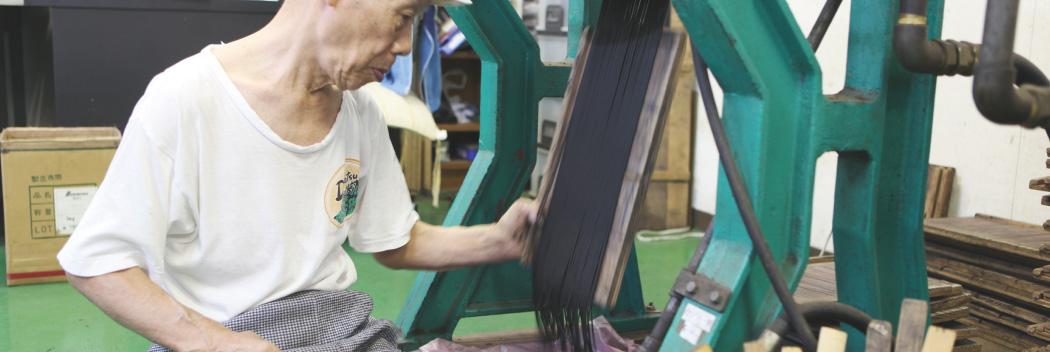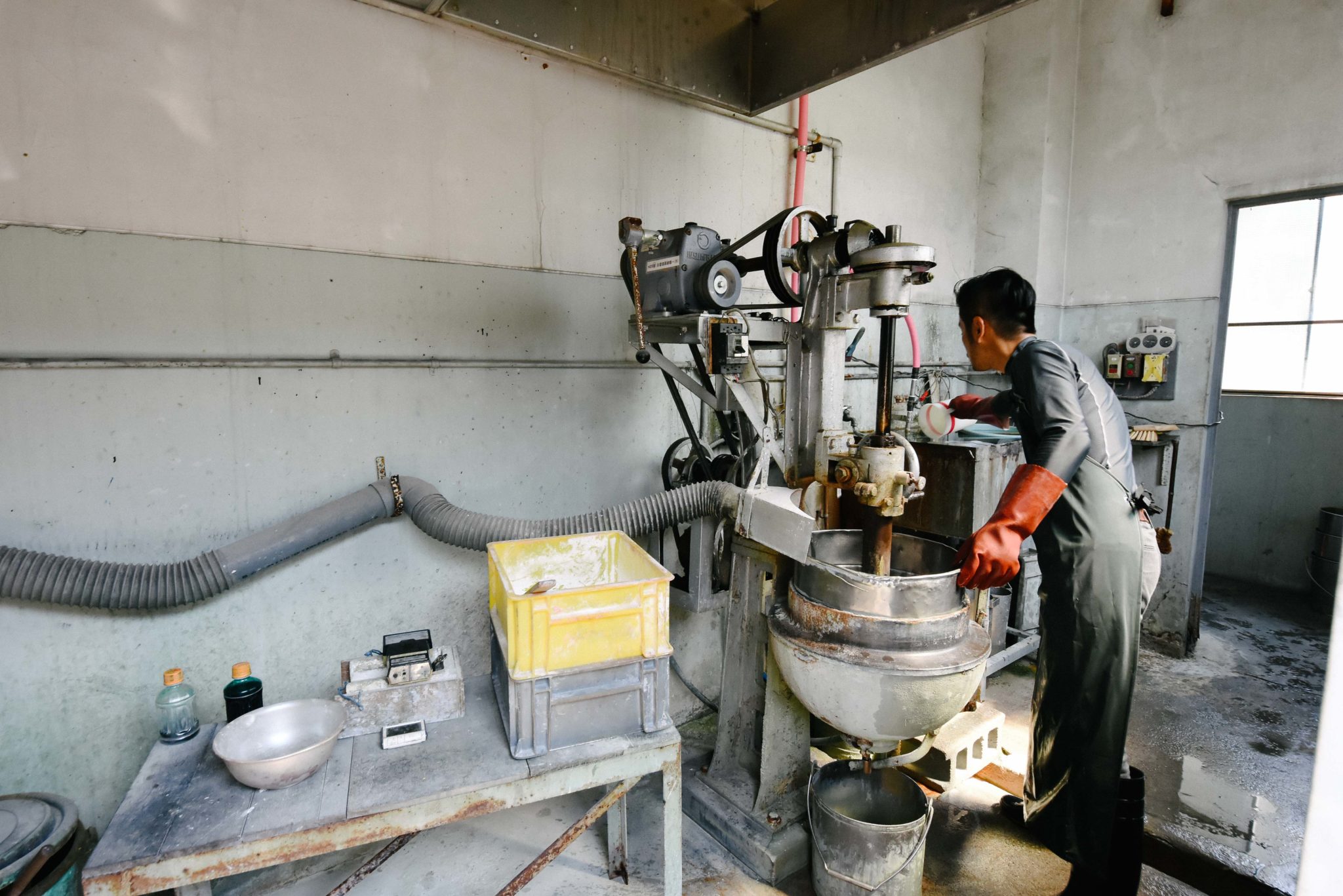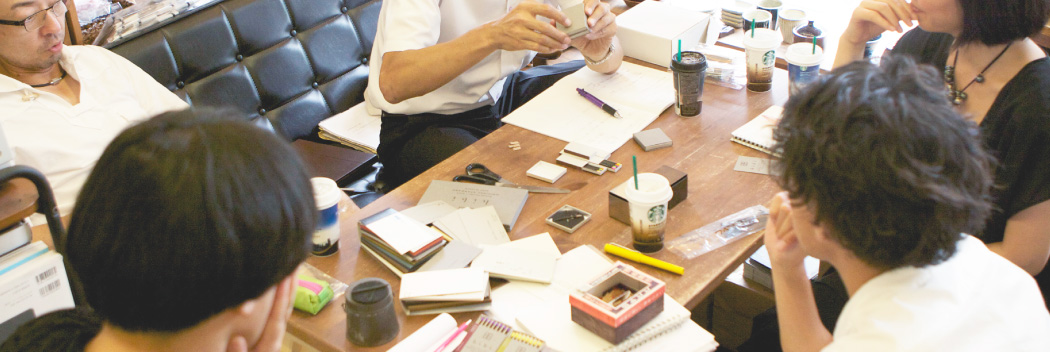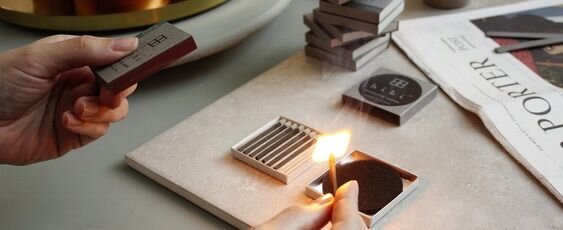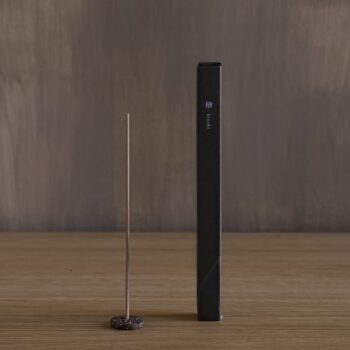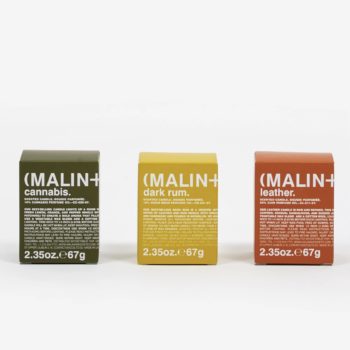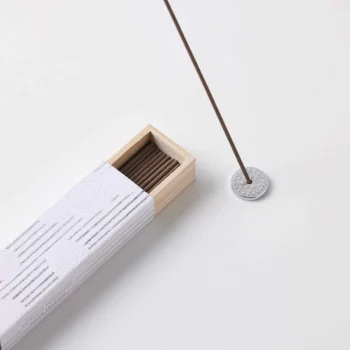hibi
Hibi was formed by the collaboration of two traditional manufacturers in Japan – The Kobe Match Co. (1929), and The Daihatsu Corporation (1936). The name hibi means ‘day to day’, or daily, in Japanese. It was chosen to signify the simplicity of the incense matchsticks – a product that can be enjoyed every day. The logo’s design combines two of the Chinese character ‘日’ (day) set next to each other. The brand is driven by simplicity, and as such, the products and packaging convey the sensibilities of today’s Japan.
The Kobe Match Co. was founded in Himeji in 1929, and accounts for around 75% of matchstick production in Japan. Match manufacturing technology was introduced from Europe to Japan at the beginning of the Meiji era (1868 -1912), and Japanese matches were exported worldwide due to their high quality. Unfortunately this industry has gradually declined, and the company has sought to develop new ideas whilst preserving its roots of traditional match production.
The Daihatsu Corporation has a long history of incense production. First established in Sakai in 1936, production later relocated to Awaji Island. It is believed that as much as 70% of domestic incense and incense sticks come from this region, which is well-suited for the production of incense due to its ‘west wind’ – a natural phenomena ideal for drying incense. Since its foundation, The Daihatsu Corporation has been manufacturing innovative products, such as incense with an aroma prepared by a French perfumer.
The incense of Awaji Island and the matches of Harima: these two traditional industries within the first encountered each other in 2011. The collaboration started with the idea of an incense that could be lit like striking a match and was followed by 3 years of trial and error. An aromatic product with properties of strength and fragrance was developed, which did not break even when struck like a match.
![]() Click & Collect
Click & Collect
